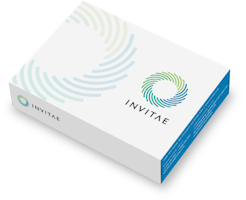
Invitae Elevated Succinylacetone Test
Test code: 06122 •
Test description
The Invitae Elevated Succinylacetone test analyzes the FAH gene, which is associated with elevated succinylacetone (the biochemical hallmark of tyrosinemia type 1) on newborn screening (NBS) or blood and urine organic acid analysis. Genetic testing of this gene may confirm a diagnosis of fumarylacetoacetate hydrolase (FAH) deficiency and help guide treatment and management decisions. Identification of a disease-causing variant would also guide testing and diagnosis of at-risk relatives.
Ordering information
Turnaround time:
10–21 calendar days (14 days on average)New York approved:
YesPreferred specimen:
3mL whole blood in a purple-top EDTA tube (K2EDTA or K3EDTA)Alternate specimens:
Saliva, buccal swab, and gDNA are also accepted.Learn more about specimen requirementsRequest a specimen collection kitClinical description and sensitivity
Clinical description:
The enzyme encoded by the FAH gene is required for the degradation of the amino acid tyrosine. Pathogenic variants in the FAH gene cause FAH deficiency and tyrosinemia type I, an inherited metabolic disorder. Elevated succinylacetone is the biochemical hallmark for tyrosinemia type I. Affected infants may or may not show elevated plasma tyrosine. An elevated plasma tyrosine can also be a nonspecific indicator of liver damage or immaturity. Clinical manifestations are highly variable and can present at any age, from the neonatal period to adulthood. Symptoms and age of onset broadly correlate with disease severity. Affected patients typically present with either an acute or chronic form of the disorder.
Infants affected with acute tyrosinemia type I usually begin with failure to thrive; if left untreated, it often develops to life-threatening liver failure within a few months after birth. Additional symptoms include fever, feeding difficulty, increased tendency to bleeding, diarrhea or bloody stools, hepatosplenomegaly, and kidney disease. Untreated infants and children are also at an increased risk for liver cancer.
Assay information
Invitae is a College of American Pathologists (CAP)-accredited and Clinical Laboratory Improvement Amendments (CLIA)-certified clinical diagnostic laboratory performing full-gene sequencing and deletion/duplication analysis using next-generation sequencing technology (NGS).
Our sequence analysis covers clinically important regions of each gene, including coding exons and 10 to 20 base pairs of adjacent intronic sequence on either side of the coding exons in the transcript listed below, depending on the specific gene or test. In addition, the analysis covers select non-coding variants. Any variants that fall outside these regions are not analyzed. Any limitations in the analysis of these genes will be listed on the report. Contact client services with any questions.
Based on validation study results, this assay achieves >99% analytical sensitivity and specificity for single nucleotide variants, insertions and deletions <15bp in length, and exon-level deletions and duplications. Invitae's methods also detect insertions and deletions larger than 15bp but smaller than a full exon but sensitivity for these may be marginally reduced. Invitae’s deletion/duplication analysis determines copy number at a single exon resolution at virtually all targeted exons. However, in rare situations, single-exon copy number events may not be analyzed due to inherent sequence properties or isolated reduction in data quality. Certain types of variants, such as structural rearrangements (e.g. inversions, gene conversion events, translocations, etc.) or variants embedded in sequence with complex architecture (e.g. short tandem repeats or segmental duplications), may not be detected. Additionally, it may not be possible to fully resolve certain details about variants, such as mosaicism, phasing, or mapping ambiguity. Unless explicitly guaranteed, sequence changes in the promoter, non-coding exons, and other non-coding regions are not covered by this assay. Please consult the test definition on our website for details regarding regions or types of variants that are covered or excluded for this test. This report reflects the analysis of an extracted genomic DNA sample. In very rare cases, (circulating hematolymphoid neoplasm, bone marrow transplant, recent blood transfusion) the analyzed DNA may not represent the patient's constitutional genome.
You can customize this test by clicking genes to remove them.
Primary panel
Question about billing?
Find answers